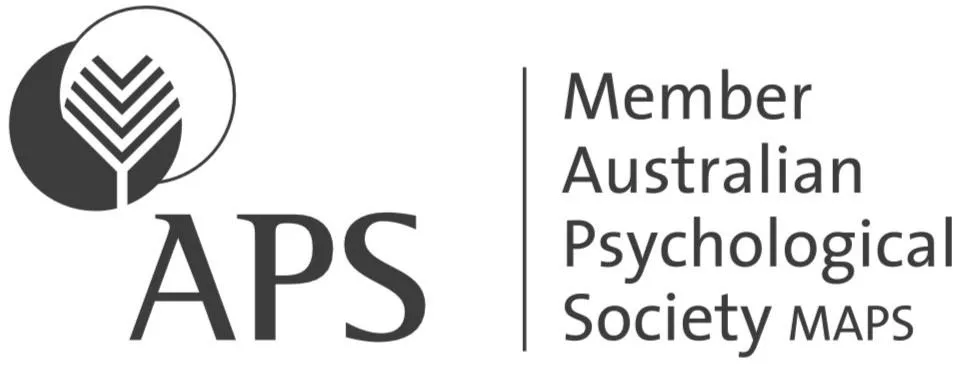Book a session
Please choose a date and time below that suits you for your appointment.
After receiving your payment you will be sent an email with the Zoom link and a receipt.
Questions about our
Services?
Medicare rebate or private medical insurance claim for psychological services?
Most clients prefer to book directly with with our counsellors. No referral is required to access this counselling service.
During the first session, you can discuss the benefits of seeking a Mental Health Care Plan from your GP should you wish to pursue this path moving forward and you are booking with a registered psychologist. If you require a Mental Health Care Plan (MHCP) you will need to make a long appointment with your GP and they will make an assessment about whether you are eligible.
All of our registered psychologists are registered with Medicare and you will need a referral from a GP if you wish to claim Medicare rebates. Under the Better Access program you can receive a partial rebate for up to 10 individual sessions in a calendar year.
All our psychologists are registered with private health insurance providers in Australia. If you have private health insurance, you may be eligible to claim rebates for psychological sessions. The level of cover and any applicable waiting periods vary between providers and depends on your extras cover policy.
To find out if you are eligible and/or how much funding you are entitled to claim for psychological sessions, please contact your private health insurance.
Where applicable, some of our psychologists also see clients who are self-managed or plan-managed through NDIS at the current rate for NDIS.
Cancellation or missed sessions policy
Given the nature of our support services, last minute cancellations are costly, and it means that other clients may miss out on receiving the required support. For cancellations within 48 hours of the scheduled appointment there is a $65 part fee payment. For less than 24 hours cancellation notice or a non-show, the full session fee will need to be charged. These fees are refunded however if the session can be filled at the last minute.
How are your counselling and coaching sessions held?
We know our clients are time poor. For your convenience, all our counselling or coaching sessions are now available online via Zoom.
You can book your appointment online via this website.
Zoom allows us to connect with you via video and audio. It just requires you to click on a link to join. You can sign up to Zoom to create a FREE account and download the Zoom Client for Meetings. Zoom does require internet connections.
After you book you will be sent a reminder about the booking and emailed a link to connect at the booked time. You are also likely to be sent a client information form to complete prior to your initial consultation to enable our Counsellors and Coaches to be better prepared for your first meeting.
If you are unable to make any of the dates available, please email us to see if we can accommodate an alternate time for you: [email protected]
If you live in Brisbane or the Gold Coast, Queensland, we are available for face to face consultations. Please email us at [email protected] if you would like to arrange an in person appointment.

Webinars - how they are received, transcripts and worksheets
Lorem ipsum dolor sit amet, consectetur adipisicing elit. Autem dolore, alias, numquam enim ab voluptate id quam harum ducimus cupiditate similique quisquam et deserunt, recusandae.

Catch up on our latest blogs

Mediation Guide
Separation and divorce can be difficult, stressful, emotional and expensive.
Even if you and your former partner are relatively amicable, you may still need assistance to work out how to disentangle and split your finances and property in a fair way and to determine what will work best for your children and your family going forward.
The Family Court expects that people involved in family law disputes will only make an application to the Court to have their matter heard when there is no other way possible to resolve their dispute. There is an expectation in other words that people will attempt to resolve their differences and find a way to settle through compromise, discussion and if required, dispute resolution, if it is safe to do so.
Mediation and Family Dispute Resolution (FDR) can help you work through your parenting and financial agreements, resolve dispute and find solutions that provide the best outcome for all parties involved. It can provide an affordable, less stressful and faster method for resolving disputes while still allowing you to have significant input into the process and the outcomes. When a matter goes to court, you lose a lot of this input and control around outcomes.
Below is an overview of the mediation process and some hints we commonly provide our client on how to best navigate the process.
When compared to the high levels of stress and onerous and unpredictable costs of litigation, mediation is a relatively simple and expensive way to resolve disputes, sort out the division of assets and liabiliteis and create a co-parenting plan that is in the best interests ultimately of the children, and workable for the parents.
In Australia, both government-funded and private centres offer a variety of options for mediation, depending on your individual circumstances.
The role of an independent mediator is to guide you to a resolution usually through a combination of joint and individual sessions. A mediator's role is to stay neutral and not 'take sides.' They make sure each party understandsthe issues at hand, is aware of each other's position, and will help find a fair and workable solution that is acceptable.
While the sessions can be held just with the separating couple and the mediator, under certain circumstances, if both parties agree, the parties lawyers, and/or a support person may attend. Children may under very limited circumstances be involved.
Some mediations may be held face to face, in person, or via zoom, or in certain circumstances, including where there has been domestic and family violence, 'shuttle mediation' can be used to keep the parties separate and in a safe space.
Communication in the course of dispute resolution are, except in certain circumstances, confidential and inadmissible in any court. The dispute resolution practitioner however may be required by law to report certain disclosures or risk.
What is Family Dispute Resolution (FDR)?
FDR is a special type of medication that is focussed on considering the needs of the children while hehlping you come to an agreement. It is often used to resolve parenting matters but property division can also be included in FDR.
It provides you with an opportunity to improve your relationship with the other party/ies and reach an agreement about legal, practical and co-parenting issues that are important to you. Because all parties are involved in reaching a resoution, it is chance to be heard properly in a more controlled and less overwhelming way compared to court, and improves usually the chances that the agreement will last into the future and reduce conflict for you and your children. You may also learn more effective ways to communicate with the other party througout the process to help you resolve any future issues/disputes.
Under the Australian Family Law system, with limited exceptions, it is compulsory for separated parents to go through the proess of FDR before applying to a Family Law Court for parenting orders.
Dispute Resolution may happen within the Court, with officers of the Court, such as a judicial registrar and court appointed child expert. The Court will make orders for these events and it is essential that you attend.
Dispute resolution may also take place externally to the Court. You can source Mediation and Family Dispute Resolution privately or through government funded services such as Legal Aid, Relationships Australia and other Family Relationship Centres.
If you are looking to source a private Mediator or FDRP, we can recommend one of our regularly appointed mediators to assist.
You should ensure that any person you engage to assist with FDR is registered as a Famiy DIspute Resolution Practitioner (FDPR) with the Commonwealth Attorney-General's Department, or if conducting arbitration, is accredited with AIFLAM, the Australian Institute of Family Law Arbitrators and Mediators.
Judicial Registrars and private mediators or FRDPs must provide a Certificate of Dispute Resolution at the conclusion of these events. There can be cost consequences for non-compliance with court orders for dispute resoluton.
What does Mediation and/or FDR cost?
Mediation has varying costs and can take anything from hours to days to complete, depending on the complexity of your situation and depending on whether financial and children issues are being considered.
Government-assisted FDR may be free or subsidised if you meet the eligibility criteria.
Fees are payable to mediators and dispute resolution practitioners in private practice.
If you have been ordered to undertake a post-separation parenting program, unless the order otherwise states, you will be required to pay for the costs of your attendance at that program.
In most cases, mediation or FDR is going to be much cheaper and faster, and a lot less stressful than battling it out in court.
Our Top Tips to Prepare for Mediation
Learn about the options available to you and what is best suited to your needs and budget.
Your FDR practitioner, lawyer or mediator will advise what documents you will be required to produce prior to, and on the day of, the mediation.
Prior to the mediation date, a complete understanding of your finances including assets, liabilities/debt, income, superannuation, parenting, child support, and other legal matters will greatly help the process. Get your documents well organised and labelled. We can assist you to prepare this list and the organisation.
When a court orders you to attend dispute resolution, orders will also be made about what documents are required to be completed exhanged and provided to the person conducting the dispute resolution. These may include for instance, any court documents such as applications, responses and affidavits, expert reports, any child impact report, confidential case summaries, and valuations.
Think about all the issues that you may want to consider including your parenting arrangements, financial and property matters before the mediation and consider what is important to you and why and what you hope to achive through mediation or FDR.
Try to keep an open mind and consider what is really motivating your priorities - is it emotionally based reasoning or is it based on what you genuinely believe is fair and in the children's best interests.
Be aware of the various costs involved in the types of mediation and FDR options available before you commit - mediator costs, lawyer costs, travel expenses, your time off work etc. Make phone calls to find out what costs are anticipated on an hourly/daily basis and any potential post mediation expense for example the costs of formalising your agreed terms of the mediation into a formal agreement which you may want to file in the Family Court to make enforceable.
Make sure you are actually available for the set mediation date and not running late. If there is any chance you will miss the date or the time, let the mediator and other party know well in advance to avoid financial consequences.
We know this can be very difficult to do, we hear you! This can be a highly emotional and confronting time which can make you feel overwhelmed and vulnerable. If is often a time in the separation/divorce process when we highly recommend that our clients reach out for additional emotional support and invest in their own self-care.
I know your head may be racing, but try to get a good nights sleep the night before mediation. We highly recommend you do not drink too much caffeine or consume other stimulants on the day or drink any alcohol throughout the day, you eat well so your sugar levels are ok, stay hydrated, take your medication as and when needed, make plans for the children after school as the mediation may go all day. You may plan to take a friend/support person if you have previously obtained the other sides consent to do this.
Ask for short breaks throughout the day to clear your head, visit the bathroom, calm down.
If you need an interpreter for the mediation, please make sure you let them know well in advance of the mediation day.
Be Aware of your Communication
Mediation is not the right opportunity or time to express your frustration, play games, be aggressive or point score.
If you can get your emotions in check and communicate effectively enough to convey your wishes, it can be an excellent way to resolve things and to help you and your children move on.
Try to stay focused on your objectives and achieving good outcomes for the children and yourself for the long term.
We always suggest to our clients that they should try to approach the mediation as a business meeting and to be as professional in their communication as possible throughout the mediation process - imagine they are talking and planning a meeting at work, asking for a pay rise with their employer or negotiating the purchase of a house. Poor behaviour such as shouting, swearing, accusing and blaming will likely derail the whole process, and make it difficult to arrive at any resolutions. Ignore the other parties potential outbursts as much as possible - don't bite! The mediator will usually help with this, so be guided by them (and your lawyer if you have one there with you.)
If you don't understand something that is explained to you, speak up and get clarification. You have the right to be heard and to ask. No question is too stupid. Don't let yourself be bullied.
If you feel unsafe, make sure you communicate this with the mediator in your initial intake consultation and provide them with any safety orders you may have.



We are committed to protecting your personal information and respecting your privacy. This website uses cookies to analyze website traffic and optimise your website experience. By accepting our use of cookies, your data will be aggregated with all other user data.
DISCLAIMER: The material contained on this website is for general educational and information purposes only and is not a substitute for professional legal, financial, medical or psychological advice or care. While every care has been taken in the information provided, no legal responsibility or liability is accepted, warranted or implied by the authors or Family Counselling Support Network and any liability is hereby expressly disclaimed. For specific advice please contact us at [email protected]. All information contained on the website remains the intellectual property of Family Counselling Support Network and is for your personal educational use only. The information must not be reproduced or distributed without the express permission of Family Counselling Support Network.
We are committed to providing an inclusive and accessible environment where people and communities of all identities and backgrounds are accepted, safe and celebrated.
Privacy Policy | Terms and Conditions
